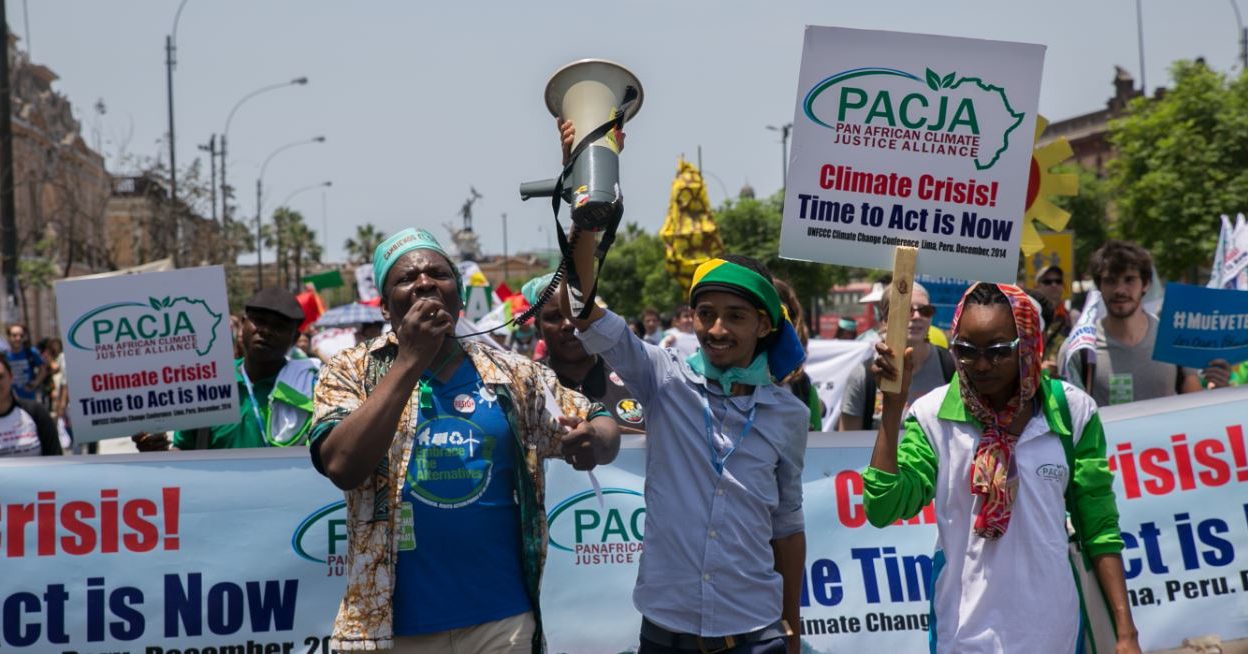This call to action was co-authored by Fania Noël from 350.org, who was a guest speaker at the YFoEE summer camp 2015. It’s a call for climate justice by French grassroots groups – highlighting the interlinkages between climate justice and the struggles faced by people of colour, low income communities, gender-queer people, and others.
Next December the United Nations climate change conference will be held in Seine-Saint-Denis, although we know too well how little to expect from COP21, as from the 20 previous conferences. COP21 has already started in the Parisian suburbs with an on-going urban cleansing program to ensure unperturbed December festivities: camps of migrants often intentionally mislabeled as “Roms” have been dismantled and police control stiffened.
Climate change affects us all, but some more than others: the air is still sweeter in some places.
Associations, groups or citizens who have been working for the survival of our communities have been excluded and rendered invisible in political decisions and actions taken against climate change. We speak today in order to center those most who are most vulnerable and precarious.
We demand climate justice, a justice that cannot come without breaking out of the current racist, capitalist and patriarchal system. Environmental issues can no longer be reduced to “is your quinoa is organic or not”, “riding your bike to work or not” or the “nuclear versus oil debate”, but instead must most focus on a systemic response to the problem.
There is no climate justice in a capitalist economy: unsanitary and precarious housing leaves the most vulnerable people open to the negative effects of pollution, bad weather and heatwaves. In France, most people cannot access quality food that isn’t a product of grower exploitation.
There is no climate justice in a patriarchal economy: women living in the Global South, being the most vulnerable, bear the brunt of natural disasters and climate change. Climate change has a tremendous impact on their health; raises the cost of living, and can lead to social and cultural instability.
There is no climate justice in a racist economy: debate on climate change is taken over by groups where racialized and working class people are almost completely absent or rendered invisible. Because of this situation, measures taken against climate change leave out those who are the most impacted.
There is no climate justice in an imperialist economy: nations of the Global North continue to build their capitalist economies on the exploitation of nations of the Global South through neo-colonialist polities that they conduct directly or via international governing bodies.
Climate change is not the result of individual actions, but of an entire capitalist and neo-colonialist economy fueling global and local inequalities between North and South, and between the rich and the poor of the same country. When we know that “90 corporations are responsible for 2/3 of global greenhouse gas emissions” it is clear that individual gestures won’t be enough. Ambitious political actions need to be taken to escape a system built on racist, patriarchal and capitalist institutions. Three issues need to be tackled urgently because of their deadly impact:
- Access to 100% renewable and affordable energy for all. In order for this to happen, no more financial aid should be given to fossil fuel industries, and there should be a complete ban on extraction. We should commit to the non-exploitation of 80% of fossil fuel reserves.
- Food safety through sustainable organic and affordable agriculture for all. For now, “organic” labels only tell us “what” the product is made of, whereas it should include information on water and soil use, greenhouse gas emissions related to transportation or the social and economic impact on workers. Global South countries served as a justification for “feed the planet” policies that only benefited the big corporations behind pesticide-infested agricultural over-exploitation. They have perpetuated food aid programs that are ineffective and deadly to local farming. Subsidies provided to productivist agriculture only strengthens inequalities between farmers of the North and those of the South.
- The end to war and (neo)colonialist interference and to the appropriation of the wealth and resources of the Global South. In our fight, we declare full and absolute solidarity with Global South populations who are the victims of capitalist and neo-colonialist policies of Northern countries and/or of their own governments’.
Because we are fighting every day against this system that turns us into third-class citizens, we are now joining forces and demand climate justice.

